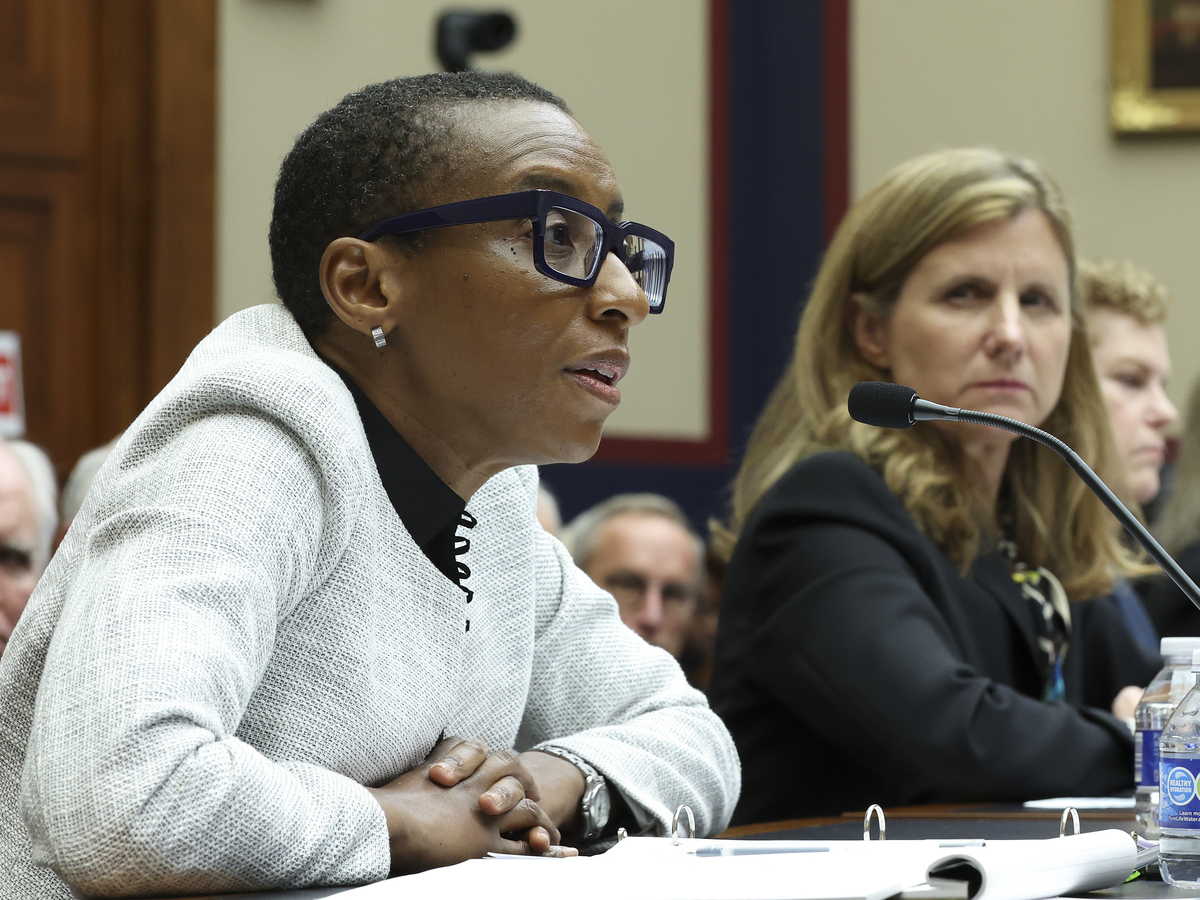
Dr. Claudine Gay, President of Harvard University, and Liz Magill, President of University of Pennsylvania, testify before a Congressional Committee about antisemitism on campus earlier this month. Kevin Dietsch/Getty Images hide caption

Dr. Claudine Gay, President of Harvard University, and Liz Magill, President of University of Pennsylvania, testify before a Congressional Committee about antisemitism on campus earlier this month.
Kevin Dietsch/Getty ImagesProtests by students supportive of Israeli and Jewish communities, and protests by students supportive of Palestinian communities, have reignited the debate over free speech on college campuses.
That debate only intensified when the Presidents of Harvard, the University of Pennsylvania and MIT testified before a Congressional committee last week about antisemitism.
NPR's Scott Detrow talks with NPR education correspondent Elissa Nadworny and first amendment lawyer Greg Lukianoff about the climate on college campuses and the tension between protecting students and supporting free speech.
Email us at
This episode was produced by Brianna Scott, Avery Keatley and Connor Donevan. It was edited by Courtney Dorning. Additional reporting in this episode from NPR's Tovia Smith and WBUR's Education Reporting Fellow Emily Piper-Vallillo. Our executive producer is Sami Yenigun.

 Live Radio
Live Radio